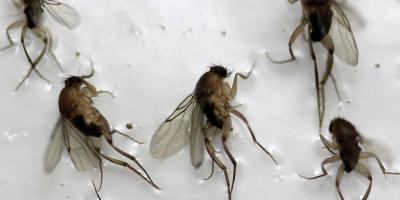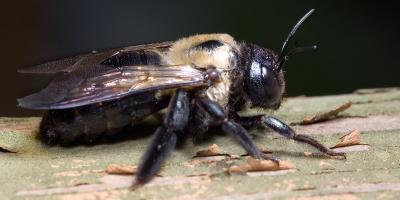Zika Spurs An Unprecedented Travel Warning From The CDC

If you’re planning to spend some time wading in the Atlantic, you just might want to stick to beaches in New England. At least, according to the Centers for Disease Control and Prevention, make your best effort to circumvent Miami. Unlike the majority of the reported Zika cases in the mainland United States, this particular outbreak was caused by local mosquitos. In the Wynwood Arts District, just north of downtown Miami, mosquitos have picked up the virus and are spreading it. Cue hysteria in the Magic City.
Never before has the CDC advised citizens not to travel to a neighborhood in the contiguous U.S. for fear of catching an infectious disease. 14 people in Florida have been infected by local mosquitoes, which means that the virus is no longer a predominantly travel-based issue. While researchers are still actively trying to find a way to combat the disease, the prospect of the virus spreading further into North America has many Americans on edge. With CDC personnel on the ground in Miami, we advise you to familiarize yourself with as many preventative measures as possible, especially if traveling.
Why 14 Infections Are More Alarming Than 1,600…
As of July 27th, there have been 1,657 travel-associated cases of the virus reported in the contiguous U.S. It may not seem like a large number, but this is more than double the amount we reported in our update just over a month ago. 126 of these cases are right here in New England, and the state with the highest number of reported cases (New York, 449) is right next door. The travel-associated cases, however, are not as much of a cause for alarm as the 14 infections via local mosquitoes. This is no longer a virus that Americans are “bringing home”. The Zika virus, although currently contained, is here.
How Contained Is The Virus?
Though measures are being taken to prohibit the spread of the virus when traveling, there has been little effective containment of the travel-associated infections. Zika on the home front is, thus far, contained to the Wynwood neighborhood in Miami. The good news is that the mosquitoes that are flying around Wynwood can’t exactly go too far. Aedes aegypti mosquitoes, aka the ones you want to hose with DEET, can only travel about 500 feet maximum in their lives. This, combined with the fact that their range doesn’t extend into New England, means that the virus is not posing too much of a threat in terms of our local mosquitoes.
The Zika Olympics
All eyes are on Rio, and not just for the athletes. This year’s 2016 Summer Olympics in Rio, Brazil pose a major threat in the spread of the Zika virus. The South American country has been eagerly anticipating the event, making major pushes to renovate their infrastructure to handle the strain the visiting athletes and spectators will put on their system. However, with reports of nearly 4,000 cases of birth defects caused by the virus in Brazil alone, spectators and athletes should be extremely wary of mosquitoes. Americans could bring the virus back to the states and transmit the virus, not only to others, but to the mosquitoes that would subsequently reproduce and spread the virus locally.
Don’t Panic, Be Proactive
While Zika might not seem like an immediate threat to you and your loved ones, it’s still important to limit your exposure when possible. If you have plans to travel to South Florida or Caribbean destinations for leisure, especially to locales where the virus has been found to be prevalent, it might be time to reconsider. This goes doubly for trips to South America.
Though there aren’t any proven solutions for the actual virus to date, you can rely on JP Pest Services to assess your current mosquito issues and develop a solution right for you. With decades of experience dealing with mosquitoes and other pests, you won’t find a better partner to work with. Contact our Professionals today and find out how we can help prevent mosquitoes from invading your space.



